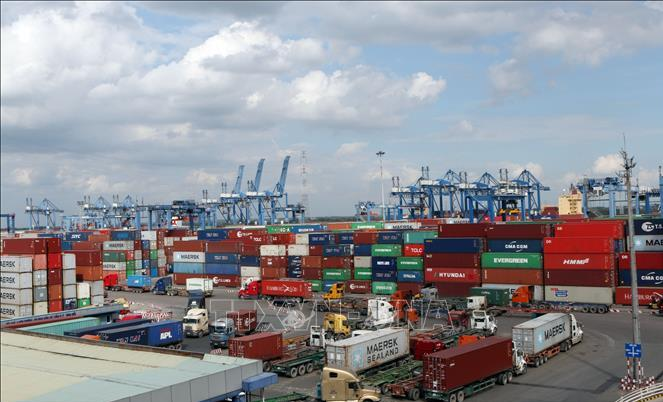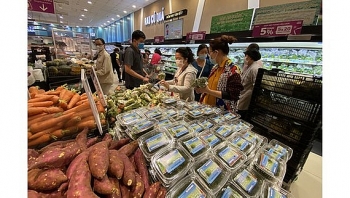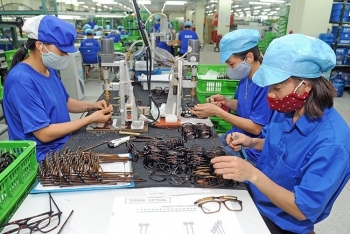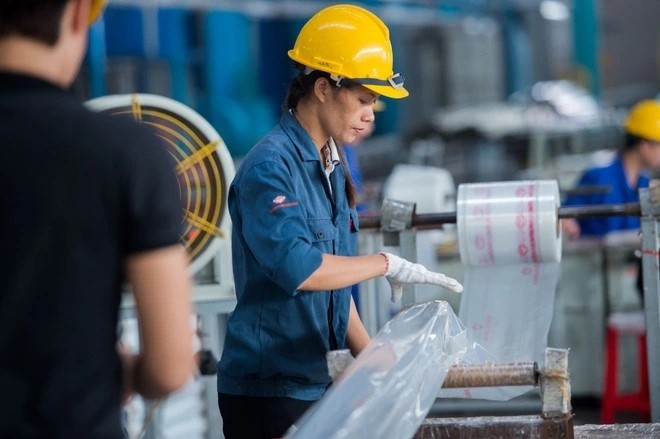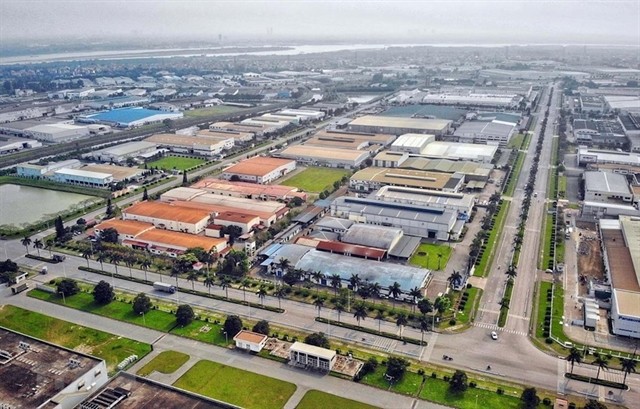Vietnamese economy sets to grow strong over the next decade
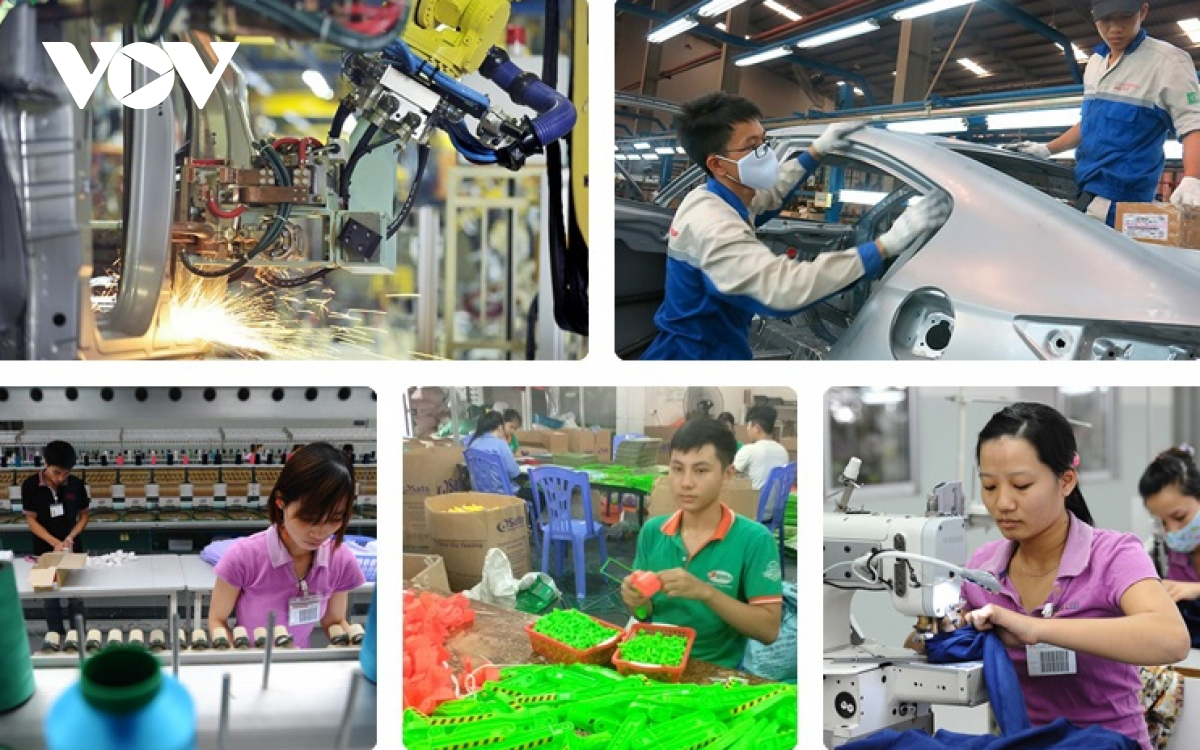 |
| Photo: VOV |
The forecast made by the market research company is at the lower end of the Government’s 6.5% to 7% growth target for the 2021 to 2025 period.
Moving forward, it is likely that the country’s free trade agreements can help to expand external market access and therefore avoid overdependence on a single trading partner, according to Fitch Solutions, according to VOV.
The country also plans to prioritise the import of machinery and high-tech equipment, it said.
"A key difference in the economic strategy going forward is the Government’s aim to ascend the value chain and grow its high-tech industry."
However, this would require an increase in skill levels, which could only improve slowly over the coming decade,” it said.
"We expect the skills shortage to pose an impediment to the country’s ascension up the value chain."
In terms of future infrastructure development, the next five years will see the nation push forward with plans to complete the eastern cluster of the North-South Expressway and the first phase of the Long Thanh International Airport. In addition, over 1,700 kilometers of a coastal road from the northern province of Quang Ninh to the southern province of Ca Mau will also be developed.
Despite these targets, tardy permit approvals and the land acquisition process are likely to delay infrastructure projects.
The Government will also be targeting a budget deficit of 3.7% of GDP over the next five-year period.
"This implies that the Government intends to borrow more to fund expenditures over the coming years."
The Government will also aim to keep public debt at 47.5% of GDP, below the 65% limit, which Fitch Solutions believes to be an achievable target given the country’s strong economic growth potential.
This comes after Vietnamese GDP growth stood at just 2.9% last year due to the novel coronavirus (COVID-19), though it was one of the few economies in the world to achieve positive growth, higher than China at 2.3%, while the majority of other economies endured negative growth.
Furthermore, economists from Bank of America also anticipate that the Vietnamese economy will grow at 9.3% this year, higher than the forecast made by the World Bank.
Vietnam is one of the most dynamic emerging countries in East Asia region
In 2019, Vietnam’s economy continued to show fundamental strength and resilience, supported by robust domestic demand and export-oriented manufacturing. Real GDP grew by an estimated 7 percent in 2019, similar to 2018, one of the fastest growth rates in the region.
Given its deep integration with the global economy, the Vietnamese economy has been hit hard by the ongoing COVID-19 pandemic, but has shown remarkable resilience. The initial health impact of the outbreak had not been as severe in Vietnam as in other countries due to proactive measures at the national and subnational levels. The macro-economic and fiscal framework remains resilient with an estimated GDP growth rate of 1.8 percent in the first half of 2020, projected to reach 2.8 percent for the year. Vietnam is one of the few countries in the world not to expect a recession, though its growth rate for this year is far less than the typical 6-7 percent pre-crisis projections. However, the impact of the ongoing COVID-19 crisis is hard to predict given the uncertainty surrounding its magnitude and duration. Public financing requirements will increase as the result of lower revenue and higher spending due to the stimulus package launched to mitigate the negative effect of the pandemics on households and businesses, according to The World Bank.
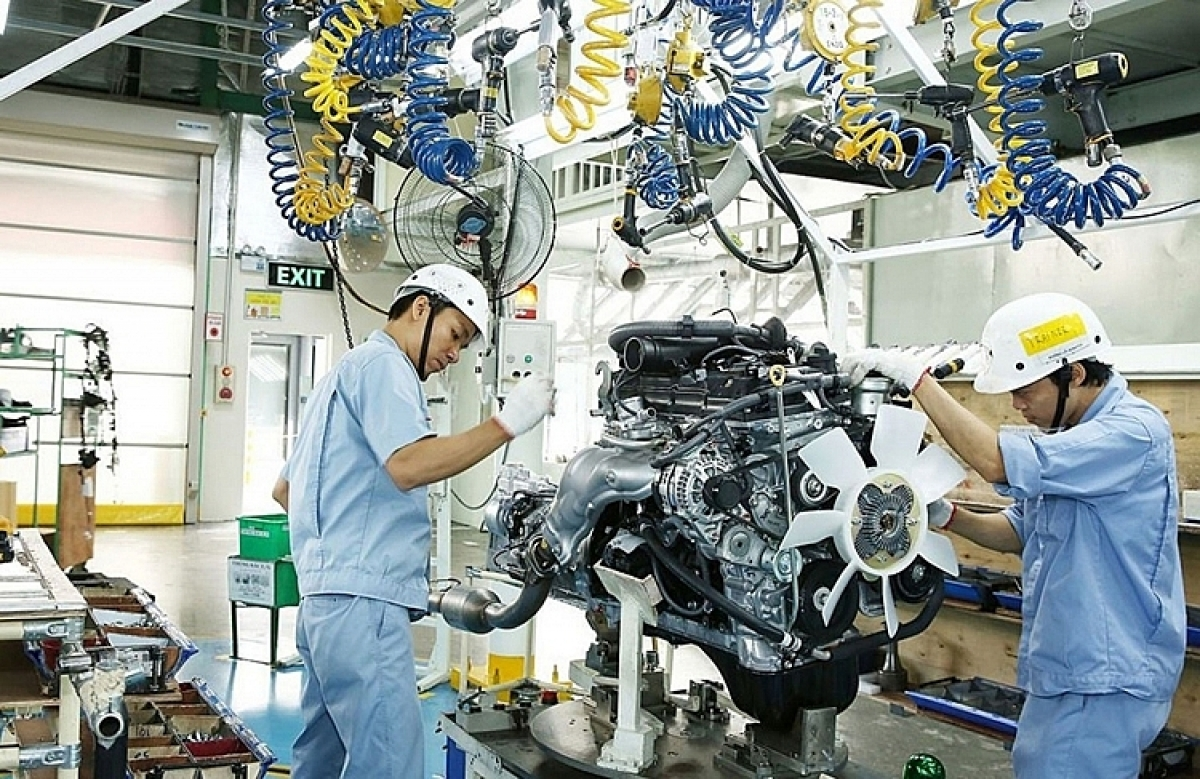 |
| Photo: Vietnamnet |
Thanks to its strong fundamentals, and assuming the relative control of the COVID-19 pandemic both in Vietnam and the world, the Vietnamese economy should rebound in 2021. COVID-19 has also shown the necessity for stronger reforms to help the economy recover in the medium term, such as improving business environment, promoting the digital economy, and enhancing public investment effectiveness and efficiency, which are some of the key agendas for Vietnam to consider stronger and faster reform actions.
Vietnam is experiencing rapid demographic and social change. Its population reached 96.2 million in 2019 (up from about 60 million in 1986) and is expected to expand to 120 million by 2050. According to the 2019 Population Census Report, 55.5 percent of the population is under 35 years of age, with a life expectancy of 76 years, the highest among countries in the region at similar income levels. But the population is rapidly aging. And Vietnam’s emerging middle class, currently accounting for 13 percent of the population, is expected to reach 26 percent by 2026.
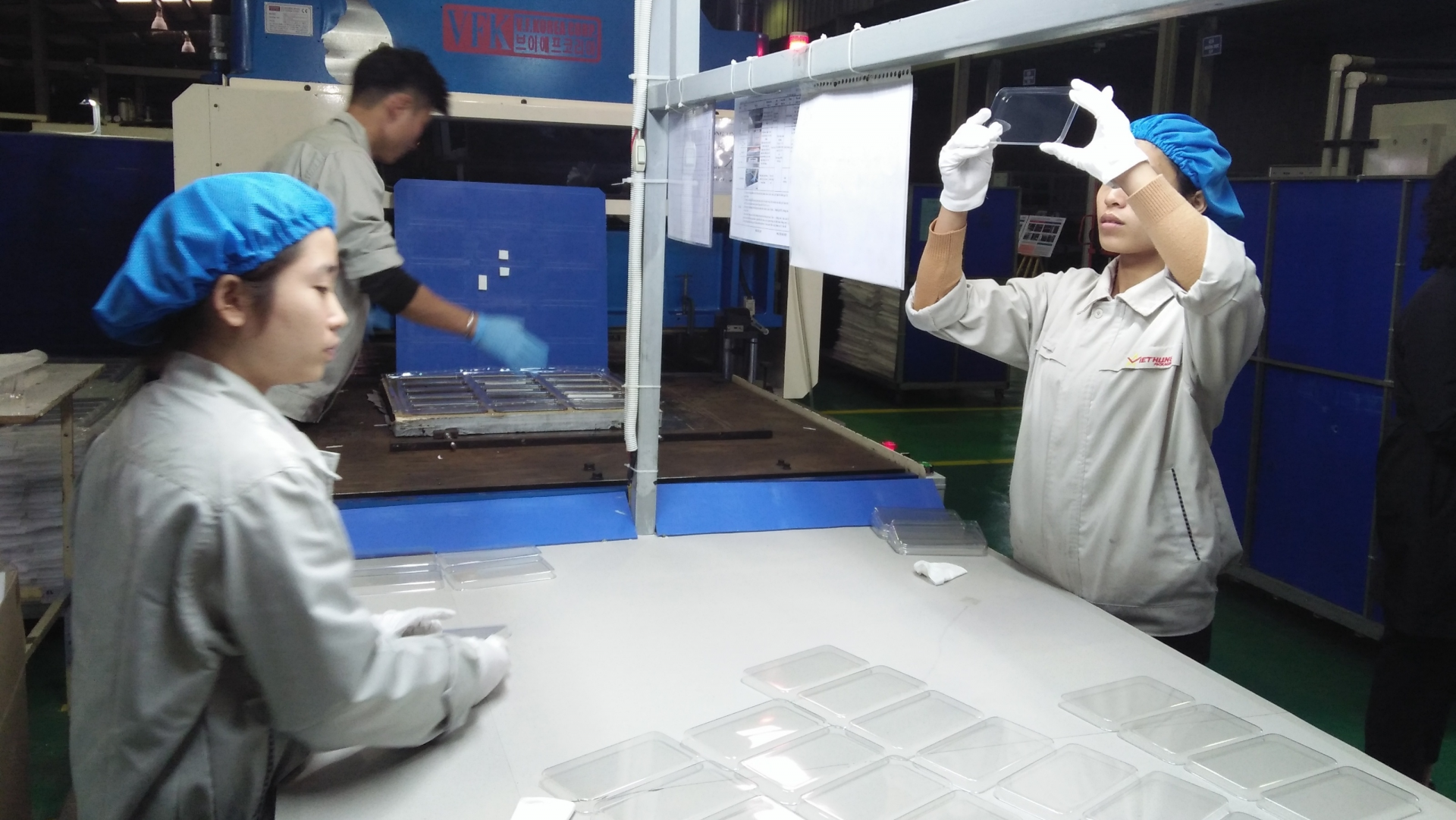 |
| Photo: Nhandan |
Between 2010 and 2020, the Human Capital Index for Vietnam increases from 0.66 to 0.69. A Vietnamese child born today will be 69 percent as productive when she grows up as she could be if she enjoyed complete education and full health. Vietnam’s HCI is the highest among middle-income countries, but there are some disparities within the country, especially for ethnic minorities. There is also a need to upgrade the skills of the workforce to create productive jobs at a large scale in the future.
Over the past 30 years, the provision of basic services has improved significantly. Access of households to infrastructure services has increased dramatically. As of 2016, 99 percent of the population uses electricity as their main source of lighting, up from just 14 percent in 1993. Access to clean water in rural areas has also improved, up from 17 percent in 1993 to 70 percent in 2016, while that figure for urban areas is above 95 percent. However, in recent years, Vietnam’s physical capital investment as a percentage of GDP has been among the lowest in the ASEAN region. This will create challenges for continued growth of modern infrastructure services required for the next phase of growth (Vietnam ranks 89th out of 137 countries for quality of its infrastructure).
Vietnam’s rapid growth and industrialization have had detrimental impacts on the environment and natural assets. Electricity consumption has tripled over the past decade, growing faster than output. Given the increasing reliance of fossil fuels, the power sector itself accounts for nearly two-thirds of the country’s greenhouse gas emissions. There is an urgent need to accelerate the clean energy transition. Over the past two decades, Vietnam has emerged as the fastest growing per-capita greenhouse gas emitters in the world – growing at about 5 percent annually. Demand for water continues to increase, while water productivity is low, about 12 percent of global benchmarks. Unsustainable exploitation of natural assets such as sand, fisheries, and timber could negatively affect prospects for long-term growth. Compounding the problem is the reality that much of Vietnam’s population and economy is highly vulnerable to climate impacts.
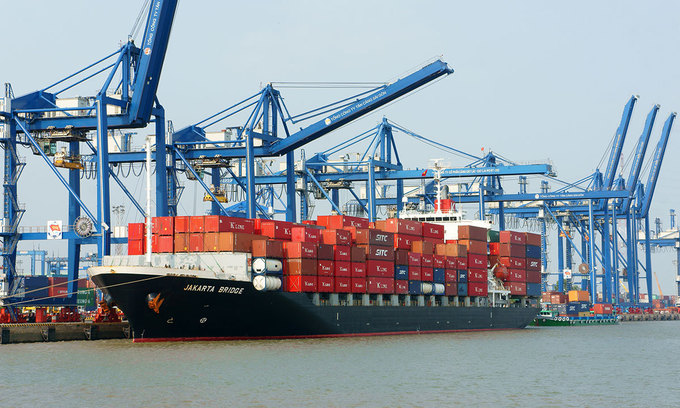 | Vietnamese economy projected to post positive growth in 2021 With its relatively impressive economic growth last year, Vietnam is garnering some high-profile optimism from the international community in terms of a strong recovery this ... |
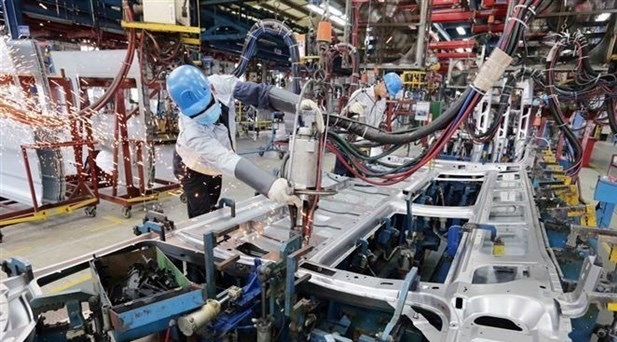 | Vietnamese economy shows positive signals in January In the first month of 2021, the Vietnamese economy showed positive signals with an increase in export revenue of goods as well as foreign direct ... |
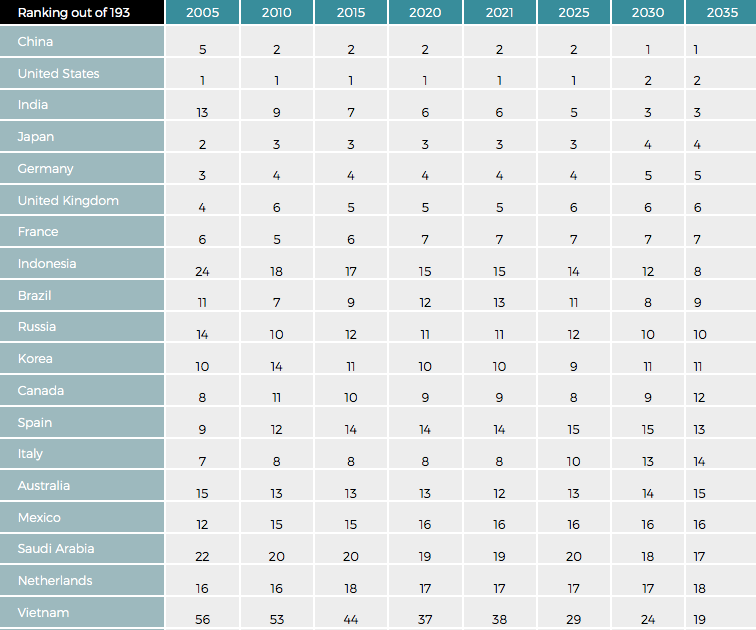 | Experts: Vietnamese economy set to rebound in 2021 Thanks to the promotion in private investment and exports, the Vietnamese economyis set to bounce back in 2021, experts said at a forum in Ho ... |

